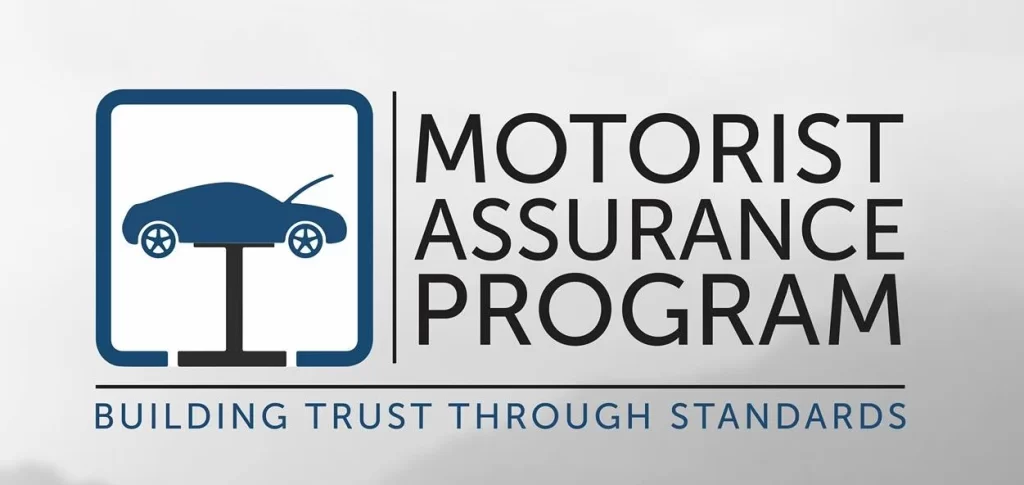You should check your brake pads every 10,000 to 15,000 miles and replace them when their thickness falls below 3mm. Remember, driving habits like hard braking or stop-and-go traffic can wear them out faster. Following your vehicle’s owner’s manual is key to maintaining safety and performance. Keeping an eye on their condition helps prevent costly repairs down the road. Keep going to discover more tips on caring for your brake system effectively.

Key Takeaways
- Replace brake pads every 30,000 to 70,000 miles, depending on driving habits and conditions.
- Check brake pads every 10,000 to 15,000 miles for wear and performance.
- Replace pads when thickness falls below 3mm to ensure safety.
- Follow the owner’s manual for vehicle-specific replacement recommendations.
- Regular inspections help catch wear early, preventing costly repairs and ensuring safety.
Understanding Brake Pad Lifespan
When it comes to your brake pads, understanding their lifespan is essential for your safety. Several factors influence how quickly they wear down, including driving habits and road conditions. Plus, following manufacturer recommendations for replacement intervals can help you avoid costly repairs down the line.
Factors Influencing Brake Pad Wear
Although brake pads are designed to endure significant wear, several factors can influence how quickly they need to be replaced. Your driving habits play a major role; frequent hard braking or stop-and-go traffic can wear pads down faster. Additionally, the type of brake pads you use—ceramic, organic, or metallic—affects their lifespan. Environmental conditions, such as wet or dusty roads, can also contribute to wear. On average, brake pads last between 30,000 to 70,000 miles, but this varies based on the factors mentioned. So, how often do brake pads need to be replaced? Regular inspections and monitoring your driving style can help you stay ahead of brake pad wear and guarantee your safety on the road.
Manufacturer Recommendations for Replacement Intervals
Understanding how often to replace brake pads goes beyond just monitoring your driving habits and environmental conditions. Manufacturer recommendations typically suggest checking your brake pads every 10,000 to 15,000 miles, but this can vary based on your vehicle and driving style. To know when you should replace your brake pads, consult your owner’s manual, as it often provides specific guidelines tailored to your model. Additionally, some manufacturers may recommend replacement when the pad thickness falls below a certain measurement, usually around 3mm. Always remember that adhering to these recommendations can guarantee peak performance and safety. If you’re ever in doubt, don’t hesitate to consult a professional for advice on how often should you replace your brake pads.
Consequences of Neglecting Worn Brake Pads
Neglecting worn brake pads can seriously compromise your vehicle’s safety and performance. If you don’t replace them in time, you risk causing damage to your brake rotors and calipers, leading to costly repairs. Staying on top of your brake maintenance is essential to keep your vehicle running smoothly.
Impact on Vehicle Safety and Performance
When brake pads wear down, the safety and performance of your vehicle can be severely compromised. If you’re wondering how often you should change your brake pads, it’s essential to understand that neglecting them can lead to longer stopping distances and reduced control. Worn pads can cause your brakes to overheat, leading to brake fade, which means they won’t respond effectively when you need them most. You might also find yourself in situations where you have to replace your brake pads more frequently if you wait too long. So, how often you have to replace your brake pads? Regular inspections and timely replacements are key to ensuring your vehicle remains safe and performs efficiently on the road.
Potential Damage to Brake Rotors and Calipers
Ignoring worn brake pads can lead to serious damage to your brake rotors and calipers. When brake pads wear down, they can no longer absorb the friction needed to stop your vehicle effectively, causing the metal parts of the braking system to grind against each other. This not only shortens the lifespan of your rotors but can also result in costly repairs for your calipers. So, how often should you replace your brakes? Generally, you should check them every 12,000 to 15,000 miles. If you’re wondering how often you need to replace your brake pads, it’s crucial to be proactive. Keeping an eye on brake wear can save you from significant damage and expenses down the road.
Best Practices for Extending Brake Pad Life
To keep your brake pads lasting longer, you need to be mindful of your driving habits. Smooth acceleration and braking can make a significant difference in brake wear. Plus, regular brake system inspections help catch issues early, ensuring your brakes stay in top shape.
Driving Habits That Preserve Brake Health
Although it might seem tempting to accelerate quickly and brake hard, adopting smoother driving habits can greatly extend the life of your brake pads. By easing off the gas and braking gently, you can reduce wear and tear. This not only helps you ask how often should you change your brake pads on your car but also guarantees you’re making the most of your investment.
Consider these practices to preserve brake health:
- Anticipate stops to avoid sudden braking
- Maintain a safe following distance to reduce emergency stops
- Use engine braking on downhill slopes
You might wonder, should you replace all brake pads at once? While it’s not always necessary, doing so can guarantee peak performance and safety on the road.
Importance of Regular Brake System Inspections
Regular brake system inspections play a vital role in maintaining your vehicle’s safety and performance. By having your brakes checked regularly, you can catch issues early, ensuring your brake pads and other components are in top shape. You might wonder, how often you change brake pads on a car? While it varies, regular inspections help determine the right timing for replacements based on your driving habits and brake condition. Ignoring this aspect can lead to costly repairs and unsafe driving situations. Understanding the importance of regular brake system inspections not only extends the life of your brake pads but also enhances your overall driving experience. Keep your vehicle safe and reliable by prioritizing these essential checks.
Frequently Asked Questions
What Factors Influence How Long Brake Pads Last?
Several factors influence how long your brake pads last. Driving habits, vehicle weight, brake pad material, and environmental conditions all play a role in wear. Regular maintenance checks can help extend their lifespan.
Are There Different Types of Brake Pads Available?
Just like choosing the perfect shoes for a dance, there are various brake pads tailored for different driving styles. You’ve got organic, semi-metallic, and ceramic options—each offering unique benefits depending on your vehicle’s needs.
How Can I Tell if My Brake Pads Are Worn?
You can tell if your brake pads are worn by listening for squeaking noises, feeling vibrations when braking, or noticing a longer stopping distance. Regular visual inspections can also reveal thinning pads needing replacement.
Do Driving Habits Affect Brake Pad Wear?
Yes, your driving habits definitely affect brake pad wear. If you frequently brake hard or drive in stop-and-go traffic, your pads will wear out faster. Smooth driving can help extend their lifespan considerably.
Can I Replace My Brake Pads Myself?
Replacing brake pads yourself can feel like steering your ship through stormy seas. If you’ve got the tools, skills, and patience, you can tackle it. Just remember to stay safe and follow proper procedures!
Conclusion
To sum up, keeping an eye on your brake pads is essential for your safety and your vehicle’s longevity. Just like a knight wouldn’t venture into battle without checking their armor, you shouldn’t hit the road without ensuring your brakes are in top shape. By recognizing the signs of wear, following manufacturer guidelines, and adopting good driving habits, you can extend your brake pad life and enjoy a smoother, safer ride. Don’t wait until it’s too late!















